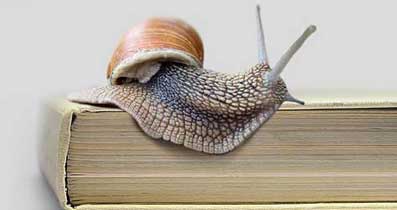|
Strugatsky, Arkady
(1925–1991) and
Strugatsky, Boris
(1931– )
The Strugatsky brothers are easily the best known Russian science
fiction writers in the English-speaking world, with more than a dozen
published novels in the United States. Russian science fiction,
particularly during the Soviet era, tended to be limited by the
restrictions one might expect from that political system. Utopian novels
were necessarily socialist, and capitalism could hardly be dealt with in
openly favorable terms. The brothers sidestepped many of these issues, and
their occasional satirical swipes at consumerism and other Western values
are not all that different from similar criticisms from American and
English writers. They were also talented storytellers, and the quality of
their work gained them an appreciative audience outside their home
country.
Their books did not necessarily appear in the United States in the same
order that they were originally written, and it is difficult to track
their stylistic progression based on the American publication dates. There
were common characters and settings, particularly in the earlier works,
which often involved Utopian societies. Noon: 22nd Century, for
example, first appeared in 1967 but was not available in English until
1978, but the space captain from that novel has further adventures in at
least one of the stories in The Far Rainbow, which was published in a
first English edition in 1967. Space Apprentice (originally from 1962,
translated in 1978) is a series of linked stories about the adventures of
a spaceship's crew, and is also linked to the two previously mentioned
titles.
Hard to Be a God (1964, translated 1973) was their most popular novel in
the United States. A single Earthman on a distant inhabited world conceals
his existence as he tries to shape the alien society so that it will
evolve into a more tolerant and progressive culture. His observations lead
him to believe that any action outsiders might take will only make things
worse, an obvious criticism of colonialism. On the other hand, he
recognizes that the status quo has already established conditions that
might cause the indigenes to follow a self-destructive path, and he is
caught on the horns of the dilemma of whether or not to act. It is an
ethical question that many other genre writers have glossed over or
ignored entirely in their own fiction.
Monday Begins on Saturday (1966, translated 1977) is another
series of linked stories, this time involving investigations into
paranormal activities on Earth that are frequently tied to images or
concepts from myths and legends. Tale of the Troika (1968, translated
1972) is related to that series thematically. Aliens visit Earth in
Roadside Picnic (1972, translated 1977), with fairly benevolent
intentions in that case, and again in The Second Invasion of Mars (1968,
translated in 1977), the latter of which contains some amusing satire
about Western attitudes toward personal possessions and marketing. The
Snail on the Slope (1968, translated 1980) was assembled from shorter
works and also pokes fun at selected institutions, including entrenched
bureaucrats. It is one of their best books.
Their remaining titles include The Ugly Swans
(1966, translated 1979), which involves a plague, mutant powers, and
inexplicable changes in the Earth's weather patterns; Definitely Maybe
(1976, translated 1978), in which a series of mysterious deaths is
possibly connected to a scientific project; The Final Circle of Paradise
(1965, translated 1976), wherein a man recently returned to Earth
discovers the existence of a secret organization; and Escape Attempt
(1982), a collection of short fiction. They also wrote a loose trilogy
consisting of Prisoners of Power (1969, translated 1978), Beetle in an
Anthill (1979, translated 1980), and The Time Wanderers (1985, translated
1987). There is more overt action in this trilogy than in most of their
other work. In these books, the plots involve efforts to destabilize
repressive governments on Earth and elsewhere, and prevent the
destabilization of benevolent ones targeted by agents of rebellion or
conquest. By English language standards, the Strugatsky brothers produced
relatively tame, uncontroversial stories that came to grips with serious
issues only peripherally. On the other hand, Hard to Be a God in
particular provided a new perspective on an issue that deserved more
thorough examination.
Strugatsky, Arkady, and Strugatsky, Boris
(Dates are given for first English version)
The Country of Crimson Clouds (1960)
A Voyage to Amaltheia (1962)
Far Rainbow/The Second Invasion from Mars (1967)
Hard to Be a God (1973)
The Final Circle of Paradise (1976)
Monday Begins on Saturday (1977)
Roadside Picnic/Tale of the Troika (1977)
Noon: 22nd Century (1978)
Prisoners of Power (1978)
Roadside Picnic (1978)
Definitely Maybe (1978)
The Ugly Swans (1979)
Beetle in an Anthill (1980)
The Snail on the Slope (1980)
Space Apprentice (1981)
The Time Wanderers (1986)
D'Ammassa Don. Encyclopedia of Science Fiction. – New
York: Facts On File, Inc., 2005. – P. 363-364, 502.
|
Оставьте Ваши вопросы, комментарии и предложения.
© "Русская фантастика", 1998-2013
© Don D'Ammassa, текст, 2005
© Аркадий Стругацкий, Борис Стругацкий, 1956-2013
© Дмитрий Ватолин, дизайн, 1998-2000
© Алексей Андреев, графика, 2006
Редактор: Владимир Борисов
Верстка: Владимир Борисов
Корректор:
Владимир Дьяконов
Страница создана в январе 1997. Статус официальной страницы получила летом 1999 года
|
|

